In today’s digital age, LinkedIn has become a powerful platform for professionals to connect and grow their networks. As managers and leaders, navigating this space responsibly is crucial. Business ethics on LinkedIn isn’t just about following rules; it’s about building trust and credibility in a world where reputations can be made or broken with a single post.
I’ve seen firsthand how ethical behavior can enhance professional relationships and foster a positive work culture. By embracing transparency and integrity, leaders can set a strong example for their teams. In this article, I’ll explore key ethical considerations for managers on LinkedIn and share practical strategies to ensure your actions reflect your values. Let’s dive into how ethical leadership can elevate your presence on this influential platform.
Key Takeaways
- Business Ethics Definition: Understanding business ethics involves recognizing the principles that govern professional behavior, focusing on integrity, transparency, and respect.
- Importance of Ethical Conduct: Ethical practices enhance a company’s reputation, attract top talent, and foster loyalty, leading to a positive work culture and lower turnover rates.
- Role of Managers: Managers and leaders must promote ethical behavior on Linkedin business ethics for managers and leaders, as their actions set the tone for the organization’s culture and influence professional perceptions.
- Navigating Ethical Dilemmas: Acknowledging common ethical challenges, such as misrepresentation and confidentiality breaches, helps leaders make informed decisions and maintain integrity online.
- Promoting Ethics in the Workplace: Encouraging open communication and continuous training on ethical standards enables a culture of ethics that resonates throughout the organization.
- Best Practices for Engagement: Authentic networking and privacy respect are key to building trust and maintaining a positive online presence on LinkedIn.
LinkedIn Business Ethics for Managers and Leaders
Linkedin business ethics for managers and leaders encompasses the principles that guide behavior in the professional realm. Ethical conduct on LinkedIn plays a crucial role in building trust and fostering genuine professional relationships.
Definition of Business Ethics
Business ethics refers to the standards and principles that govern how individuals act within a business context. It includes values such as integrity, transparency, fairness, and respect. In my experience, adherence to these values influences decision-making and interactions on platforms like LinkedIn. Ethical behavior not only adheres to legal requirements but also reflects personal and organizational values.
Importance of Ethics in Business
Ethics in business is essential for several reasons. Ethical practices enhance a company’s reputation, attract top talent, and foster loyalty among clients and customers. I’ve observed that organizations with strong ethical foundations experience higher employee satisfaction and lower turnover rates. Additionally, ethical behavior mitigates risks associated with reputational damage and legal challenges. Overall, strong ethics lead to a more positive work culture, encouraging collaboration and innovation among teams.
The Role of Managers and Leaders on LinkedIn
Managers and leaders play a crucial role in promoting ethical behavior on LinkedIn. Their actions and decisions shape the company’s culture and influence the perceptions of ethics within their professional networks.
Ethical Leadership
Ethical leadership hinges on demonstrating integrity and accountability. I prioritize transparency in all interactions, ensuring that communication reflects honesty and openness. Upholding ethical standards fosters trust among team members, resulting in a cohesive work environment. Encouraging ethical discussions can bolster the understanding of values across the organization. Providing resources for ethical decision-making equips team members to navigate dilemmas effectively.
Building a Trustworthy Online Presence
Building a trustworthy online presence requires consistency and authenticity. I maintain an up-to-date profile that clearly communicates my professional values and ethics. Sharing relevant content related to ethical practices reinforces my commitment to integrity. Engaging genuinely with connections, responding to comments, and participating in discussions demonstrate my dedication to fostering a positive community. Highlighting ethical achievements or initiatives showcases my leadership in ethical business practices, attracting like-minded professionals to my network.
Navigating Ethical Dilemmas on LinkedIn
Navigating ethical dilemmas on LinkedIn demands awareness of common challenges and the application of effective strategies for decision-making. I recognize that managers and leaders often face situations requiring careful consideration of their actions and communications.
Common Ethical Challenges
- Misrepresentation of Credentials
Misrepresenting qualifications or experiences can damage trust. I’ve seen profiles that exaggerate professional achievements, which compromises authenticity. - Confidentiality Breaches
Sharing proprietary or sensitive information can lead to legal consequences. I emphasize the importance of maintaining confidentiality regarding client and company data. - Networking with Conflict of Interest
Forming connections that pose conflicts of interest can undermine integrity. I avoid situations where personal gain conflicts with professional duties. - Endorsements and Recommendations
Providing endorsements without direct knowledge can mislead connections. I focus on giving endorsements only for individuals I genuinely know and can vouch for. - Engagement in Controversial Discussions
Participating in heated debates can reflect poorly on a leader’s professionalism. I choose to engage in constructive dialogue while maintaining a positive tone.
- Identify Core Values
Knowing and defining my core values guides my actions on LinkedIn. I align my content and interactions with these principles. - Seek Diverse Perspectives
Consulting colleagues or mentors can provide valuable insight when facing ethical dilemmas. I frequently discuss situations with trusted peers to gain diverse viewpoints. - Apply Ethical Frameworks
Utilizing established ethical frameworks aids in making sound decisions. I refer to models like the AICPA Code of Professional Conduct to evaluate my choices. - Reflect on Long-Term Impact
Considering the long-term repercussions of actions helps maintain a sound ethical compass. I assess how decisions may affect my reputation and professional relationships. - Stay Informed on Policies
Staying updated on LinkedIn’s policies and guidelines ensures compliance. I keep abreast of changes to avoid unintentional violations and maintain my ethical standing.
Promoting a Culture of Ethics in the Workplace
Creating an ethical workplace involves consistent efforts at all levels of management. I focus on strategies that encourage open dialogue and ongoing education to ensure that ethical standards resonate throughout the organization.
Encouraging Open Communication
I prioritize open communication as a cornerstone of ethical culture. Leaders foster an environment where team members feel comfortable discussing concerns or reporting unethical behavior without fear of retaliation. Implementing regular check-ins and feedback sessions enables an ongoing dialogue about ethical practices. My approach includes encouraging questions and discussions during meetings, which helps identify potential ethical issues early. Additionally, using anonymous reporting tools can provide employees with a secure avenue to voice their concerns, reinforcing the message that ethics is a shared responsibility within the organization.
Training and Development Initiatives
I emphasize the importance of continuous training and development initiatives focused on ethics. Regularly scheduled workshops and seminars cover key ethical issues relevant to our industry, promoting awareness and understanding of ethical standards. Providing case studies and role-playing scenarios helps team members navigate real-world dilemmas they might encounter. I also integrate ethics into onboarding processes, ensuring new employees recognize the company’s commitment to ethical behavior from day one. By investing in education around ethics, I empower my team to make informed decisions and act in alignment with our organization’s values.
Best Practices for Ethical Engagement on LinkedIn
Building ethical engagement on LinkedIn involves adhering to best practices that promote integrity and trust. These practices strengthen professional relationships and establish a positive online presence.
Authentic Networking
Authentic networking fosters genuine connections. I focus on building relationships that reflect shared values and interests. Sending personalized connection requests enhances the likelihood of meaningful interactions. Engaging with content posted by my connections through thoughtful comments or shares cultivates trust and visibility. Additionally, attending industry events and participating in discussions demonstrates commitment to my professional community. Prioritizing quality over quantity ensures my network comprises like-minded individuals who contribute positively to my professional growth.
Respecting Privacy and Confidentiality
Respecting privacy and confidentiality is crucial for ethical engagement. I always ensure that I protect sensitive information about my colleagues and clients. When sharing content, I avoid disclosing personal data without consent. Understanding the boundaries of professional and personal life distinguishes appropriate engagement from intrusive behavior. It’s critical to be mindful of LinkedIn’s privacy settings to maintain control over what information I share publicly. By respecting privacy, I build trust and demonstrate integrity, reinforcing a reputation for ethical conduct within my network.
Ethical LinkedIn
Embracing ethical behavior on LinkedIn isn’t just a choice; it’s a necessity for effective leadership. As managers and leaders, our actions set the tone for our teams and influence our professional networks. By prioritizing integrity transparency and respect we can cultivate a culture that not only attracts top talent but also fosters loyalty among clients.
It’s essential to engage in open communication and encourage ethical discussions within our organizations. This proactive approach ensures that everyone feels empowered to uphold our shared values. As I continue to navigate the complexities of LinkedIn I’m committed to promoting ethical practices that reflect my professional values and contribute to a positive online presence. Together we can lead by example and make ethics a cornerstone of our professional journey.



![[author] business ethics for managers and leaders course](https://westbrightlaw.com/wp-content/uploads/2024/11/43692c61-2758-4ecf-870e-67b6beea24b5_y91iE6L8oWa_1dxBEeN2l-1024x585.jpeg)